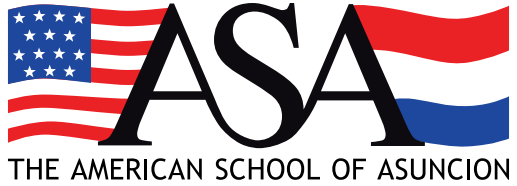
Music
Philosophy
The music department at the American School of Asuncion challenges students to acquire and establish individual abilities through music study and performance. Music classes at all levels include a variety of activities so that students receive a well-rounded understanding of the subject. Students study music theory and history and also develop their performance and listening skills. Music classes include a varied repertoire chosen from many different historical periods and cultures of the world. In ASA’s music classes, students gain an appreciation for a wide range of musical styles, and they develop the ability to express themselves creatively. By participating in ASA’s music program, students can enhance their academic performance, social skills, and self-esteem, enabling them to succeed in their lifelong endeavors.
Music Program
Elementary School
ASA's Elementary Music classes provide students with a wide variety of musical experiences. The curriculum is aligned with the AERO standards for Music and draws upon both the Orff and Kodaly teaching frameworks. Class activities foster progressive skill development in music literacy, vocal and instrumental performance, improvisation and composition, and expressive movement. Students study a repertoire of music that represents diverse cultures and historical eras. All grade levels perform at various concerts and assemblies throughout the school year. When possible, there is collaboration with classroom teachers and other specialists, so the music activities and performances build upon the material being taught in other subjects. Grades 2 and 5, for example, perform concerts that feature songs and dances representing the specific cultures in their Social Studies units.
Students in Grades 3-5 have the opportunity to participate in 2 extracurricular music activities:
- Music Ensemble: This activity focuses on developing ensemble performance skills, using a wide range of both traditional and "found" percussion instruments. Students who play other instruments (e.g.: violin, guitar, piano) may be able to use these instruments in the ensemble.
- Musical Production: Students may audition for the annual musical production in December. Cast members develop their acting, singing, and movement skills as they work together to produce a musical.
Middle School
Middle School students learn to play an instrument individually and as part of a group, read music notation, and explore the rich culture and history of music. Learning in Music is enhanced by technology apps for skill development and music theory. Music is a required course, with students choosing from band, guitar, and string orchestra.
Students select an instrument in 6th grade and continue playing it throughout Middle School. To help students choose an instrument that is right for them, music teachers host a Music Orientation Day attended by all 5th graders. Visiting each of the three Music classes, students learn about the instruments, listen to their sounds, and hear from the student musicians who play them. ASA has a fine collection of high-quality musical instruments, which can be lent to students during Semester 1 of 6th grade. Students are expected to purchase their instruments.
High School
High School students are required to take four semester-long courses in the Visual & Performing Arts, selecting from courses in Art, Music, or Drama. Students may choose to continue with the same instrument they played in Middle School. Students will develop their technical and expressive skills and explore the rich culture and history of music. Learning is enhanced by technology apps for skills development and music theory. Music courses at High School are band, guitar, string orchestra, and musical theater.
